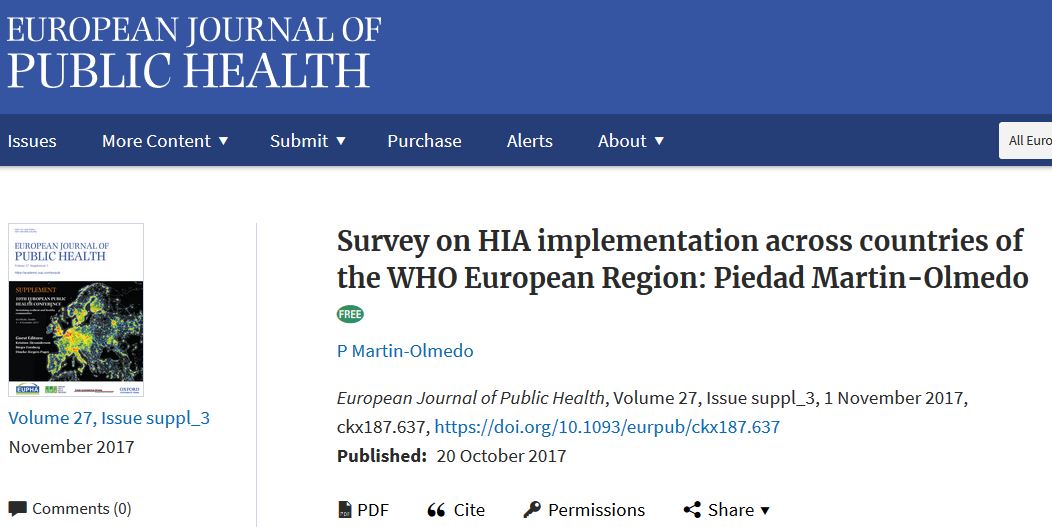
A variety of scientific publications, journal articles and books, as well as grey literature on HIA exist, either attaining the development of HIA methodology or giving specific examples on different HIAs, but up to now there is no consolidated review on HIA practice and institutionalization across Europe.
WHO Regional Office for Europe, in collaboration with the European Public Health Association (EUPHA) and the Faculty of Health Science of Bielefeld University (Germany), compiled a survey on the implementation of HIA across the 53 Member States of the WHO European Region. With that purpose, an online ad hoc questionnaire was sent to 225 professionals, 148 experts on HIA from different countries, and 77 WHO Environment and Health Focal Points.
Findings from this study correspond to inputs from 26 European countries. The reported experience on HIA ranged from one to more than 30 years, being United Kingdom and Northern Ireland the ones reporting a longer practice. The results of our survey showed that HIA has been reasonable institutionalized across Europe through a wide variety of mechanisms, some mandatory, some voluntary, that in many countries coexist (there are more than one mechanisms at different levels or in the same level). Voluntary mechanisms include well-established working procedures, community lead HIA, or HIA conducted outside the decision-making process by NGOs, universities and research units (the so-called advocated HIAs). However, when asked about effectiveness of this implementation, the largest proportion of respondents (35% from 13 countries) declared a moderate effectiveness rate, followed by 26% from 12 countries scoring low effectiveness.
Capacity building together with organizational or political support, compulsory legislation, better definition of responsibilities and methods, and more resources were identified by informants as strongly needed for a further HIA implementation in Europe


